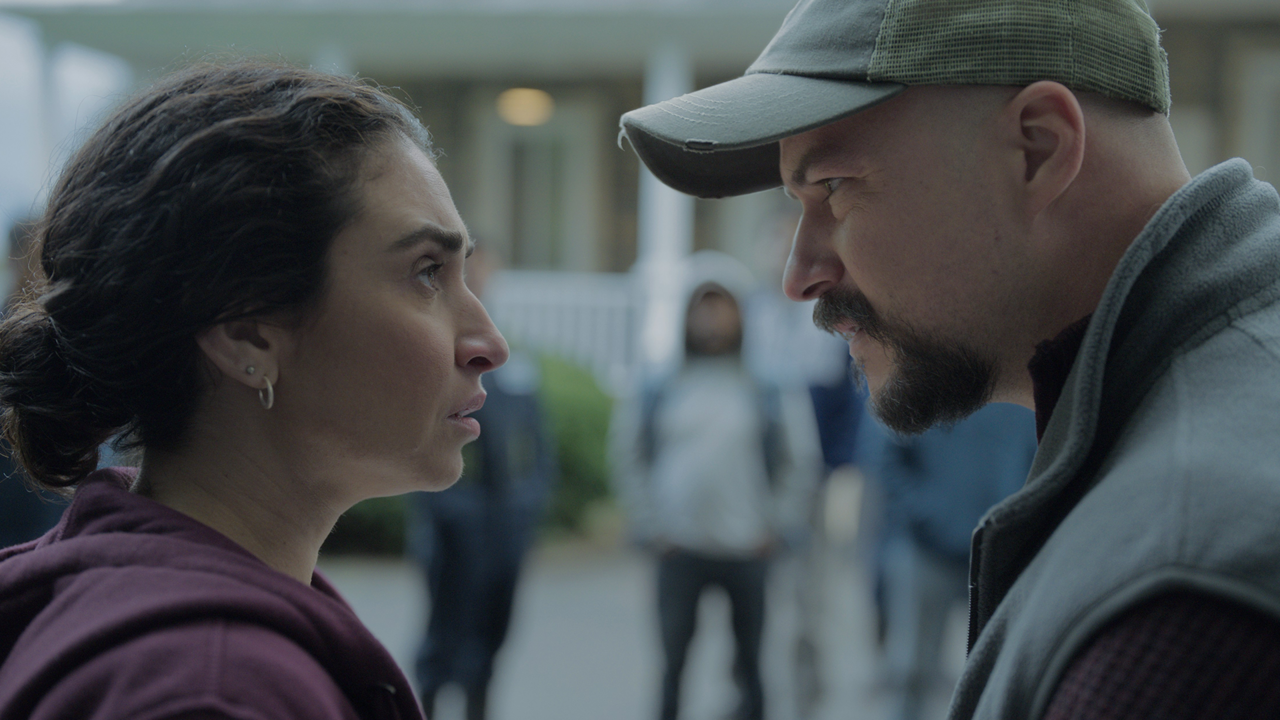|
Review by Sean Boelman
There are some social dramas that are clearly made with their issue in mind more than their story, and that is the case with Pier-Philippe Chevigny’s Temporaries (known in Canada by the title Richelieu, so named after its setting). Temporaries struggles with its writing — particularly in its first two acts that struggle to find the right perspective — but it eventually sticks the landing in a truly spectacular way.
The film follows a woman who gets a job as an interpreter for seasonal migrant workers, only to witness a series of workplace abuses and question whether she is willing — and able — to speak out about this injustice. This is an aspect of the immigration crisis that had largely not been discussed yet, and thus Chevigny’s movie is, if nothing else, notable for being an essential conversation starter. Something does have to be said about framing a narrative about this topic from the perspective of a translator rather than the workers themselves. It creates the feeling that we are watching the conflict from an outsider’s perspective looking in. Although the purpose of the film is to humanize this group of people and their occupation, this perspective has the unfortunate consequence of further other-izing them — at least initially. Thankfully, the movie largely manages to avoid the common mistake that films like this make of white saviorism. The protagonist does not feel like someone who is coming in to fix everything, but rather, someone who wants to make a difference and is completely helpless. It’s a very cynical approach, but one grounded in the bleak reality of the situation. For much of the first two acts, the movie is a somewhat grounded melodrama. The conflict comes from the protagonist’s culture shock, as she struggles to balance her heritage with her assimilated identity. However, something happens in the break to the third act that is so shocking and out of left field that it completely changes the tone of the rest of the film. The movie boasts a very grounded style, reminiscent of the works of such socially-minded realist filmmakers as Ken Loach, the Dardennes, and Cristian Mungiu. There are very few stylistic flourishes found throughout, with the focus instead being on inserting the viewer into the situation as forcefully as possible — a particular focus placed on heightening the anxiety in the third act. Ariane Castellanos’s performance in the leading role is strong, but it’s a performance that feels very quiet, internalistic, and unfussy, thus it is unlikely to make a particularly profound impression. Nelson Coronado’s performance is a bit more showy, particularly in the third act, in which he’s truly devastating to watch. Temporaries is a solid film with a lot of important things to say, and while it is largely carried by its harrowing and impactful third act. Some viewers will understandably be put off by the slow beginning, but this is nonetheless a provocative movie that explores issues that simply demand discussion. Temporaries screens at the 2023 Tribeca Festival, which runs June 7-18 in NYC and June 19 through July 2 online. Rating: 3.5/5
0 Comments
Leave a Reply. |
Archives
July 2024
Authors
All
|
|
|
disappointment media
Dedicated to unique and diverse perspectives on cinema! |

